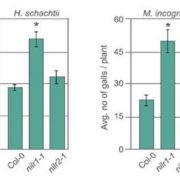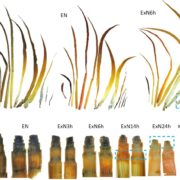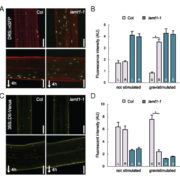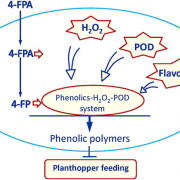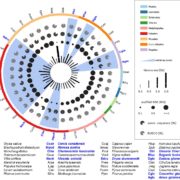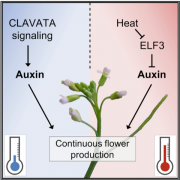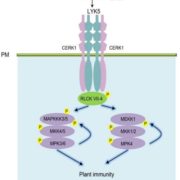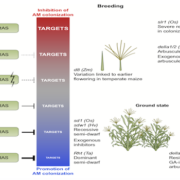Arabidopsis seeds delay germination in the presence of pathogens (eLIFE)
 The rhizosphere represents a complex and dynamic environment that poses many challenges for seed germination and seedling establishment. While a number of well-characterized abiotic factors and hormone signaling pathways are known to contribute to the initiation of seed germination, our current understanding of how plant pathogenic bacteria impact germination is poorly resolved. In a recent article published in eLIFE, Chahtane et al. (2018) provide new evidence that the bacteria Pseudomonas auregenosa strongly suppresses seed germination in Arabidopsis thaliana. The authors show that the bacterial compound AMB (L-2-amino-4-methoxy-trans-3-butenoic acid) is a strong suppressor of seed germination, which itself is regulated by bacterial quorum sensing machinery. Genetic analyses demonstrated that AMB suppression of seed germination functions through DELLA regulators that induce the known germination suppression factor ABI5. Collectively, the results suggest that seeds monitor for pathogenic bacteria in the rhizosphere to prevent unfavorable germination in hostile environments detrimental for seedling establishment. (Summary by Phil Carella) eLIFE 10.7554/eLife.37082
The rhizosphere represents a complex and dynamic environment that poses many challenges for seed germination and seedling establishment. While a number of well-characterized abiotic factors and hormone signaling pathways are known to contribute to the initiation of seed germination, our current understanding of how plant pathogenic bacteria impact germination is poorly resolved. In a recent article published in eLIFE, Chahtane et al. (2018) provide new evidence that the bacteria Pseudomonas auregenosa strongly suppresses seed germination in Arabidopsis thaliana. The authors show that the bacterial compound AMB (L-2-amino-4-methoxy-trans-3-butenoic acid) is a strong suppressor of seed germination, which itself is regulated by bacterial quorum sensing machinery. Genetic analyses demonstrated that AMB suppression of seed germination functions through DELLA regulators that induce the known germination suppression factor ABI5. Collectively, the results suggest that seeds monitor for pathogenic bacteria in the rhizosphere to prevent unfavorable germination in hostile environments detrimental for seedling establishment. (Summary by Phil Carella) eLIFE 10.7554/eLife.37082


